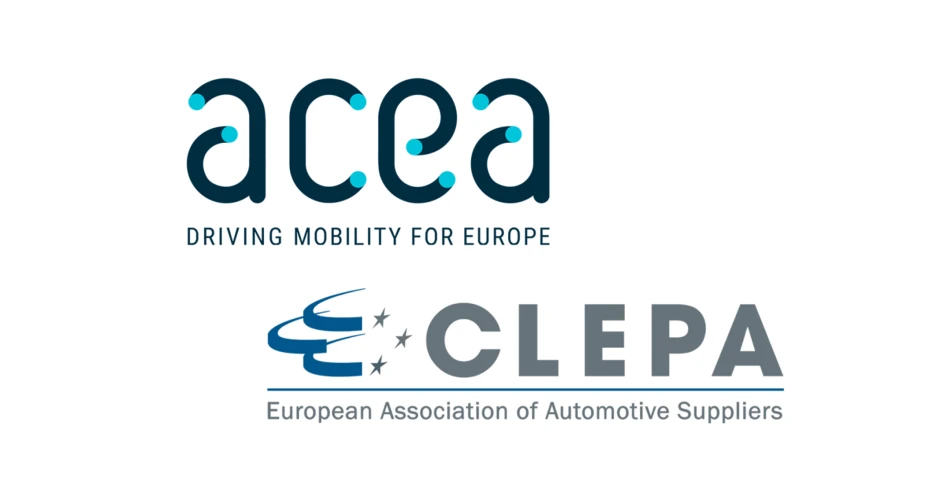European automotive manufacturers (ACEA) and suppliers (CLEPA) have written an open letter to the President of the European Commission, Ursula Von der Leyen, ahead of an upcoming Strategic Dialogue on the future of the European automotive industry on September 12th.
In the letter, the joint signatories, Ola Källenius, President of the European Automobile Manufacturers’ Association and CEO of Mercedes-Benz and Matthias Zink, President of the European Association of Automotive Suppliers and CEO Powertrain and Chassis at Schaeffler, state that the current ambitious CO2 reduction framework for road transport is no longer achievable and while they are committed to the 2050 net zero target, the milestone targets along the way will need to be adjusted.
The letter outlines alternative routes to industry transition and calls for a more holistic and pragmatic policy plan.
The letter further states that, “Europe faces near-total dependency on Asia for the battery value chain, an uneven distribution of charging infrastructure, higher manufacturing costs, including electricity prices, and burdening tariffs from key trade partners, such as the 15% duty on EU vehicle exports to the US. We are being asked to transform with our hands tied behind our backs. As a result, the battery-electric vehicle market share is still far from where it needs to be, around 15% for cars, roughly 9% for vans, and 3.5% for trucks.”
The organisations point out while significant progress has been made, many customers remain wary of switching to alternative powertrains. To encourage switching, the manufacturers are calling for much more ambitious, long-term, and consistent demand-side incentives, including lower energy costs for charging, purchase subsidies, tax reductions, and favourable access to urban space.
The letter states, “Meeting the rigid car and van CO2 targets for 2030 and 2035 in today’s world is simply no longer feasible. Instead, the current CO2 reduction path in road transport must be recalibrated to ensure it delivers on EU climate goals whilst also safeguarding Europe’s industrial competitiveness, social cohesion, and the strategic resilience of its supply chains.”
The two bodies are calling for the fostering of conditions to invest smartly along the battery, semiconductor, and critical raw materials value chains. They also argue that, “Penalties and legal mandates alone will not drive the transition. Instead there should be safeguards that all technologies can contribute to decarbonisation. EVs will lead the charge, but there must also be space for (plug-in) hybrids, range extenders, highly efficient internalcombustion-engine (ICE) vehicles, hydrogen and decarbonised fuels.”
The letter also states it is vital for Europe to retain production capacity and technological know-how. Without policies that enhance European competitiveness to maintain manufacturing, the transition risks hollowing out the industrial base, putting innovation, quality employment, and supply chain resilience at risk.
The signatories stress, “The world has changed drastically since the current direction has been setand the EU’s strategy for the automotive sector must change with it. We must move beyond the narrow assumption that this transition hinges solely on CO2 targets for new vehicles. That’s why the upcoming Strategic Dialogue on the future of the automotive industry on 12 September is the moment for a change of tack. This is the EU’s last-chance saloon to adjust its policies for today’s market, geopolitical, and economic realities—or risk jeopardising one of its most successful and globally competitive industries. We share a common destination, yet the journey requires more pragmatism and flexibility to keep the motor of Europe’s automotive sector running.”
